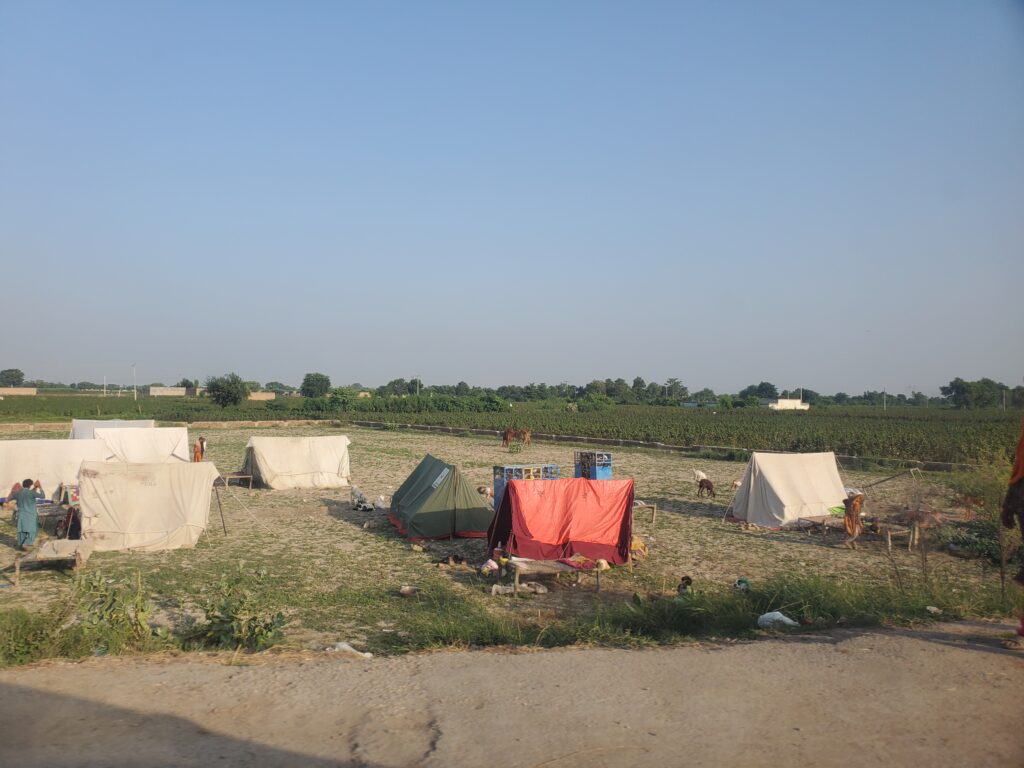Read the new feature from IWMI Pakistan, exploring their work as a part of CGIAR’s Fragility, Conflict and Migration Initiative to learn about the hidden crisis of disaster displacement.
Two years after devasting floods submerged a third of the country, killing more than 1,700 and impacting 33 million more through the loss of infrastructure, homes, livelihoods, livestock, and crops, Pakistan stands at a crossroads in disaster response. Displaced people and host communities continue to struggle in navigating the aftermath of the devastating floods. IWMI Pakistan’s feature sheds light on innovative research being conducted by IWMI as a co-lead of CGIAR’s Fragility, Conflict, and Migration (FCM) Initiative to advance disaster preparedness and Anticipatory Action.
“The FCM Initiative aims to address some of these data gaps and respond to the challenge of disaster response and management. Pakistan serves as one of the case study countries under the Initiative, where the IWMI Pakistan team is conducting research to unpack the layered challenges faced by climate migrants and the parallel vulnerabilities experienced by host populations.”

The CGIAR Fragility, Conflict, and Migration (FCM) Initiative, co-led by IWMI, spearheads innovative research to enhance anticipatory action and address vulnerabilities in host communities. Read the full feature on the FCM Initiative Website to learn more!
Originally posted by CGIAR’s Fragility, Conflict, and Migration Initiative.

